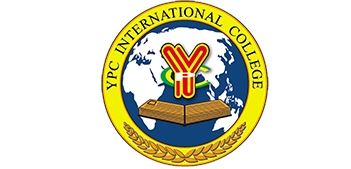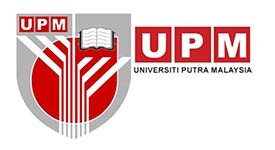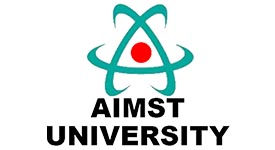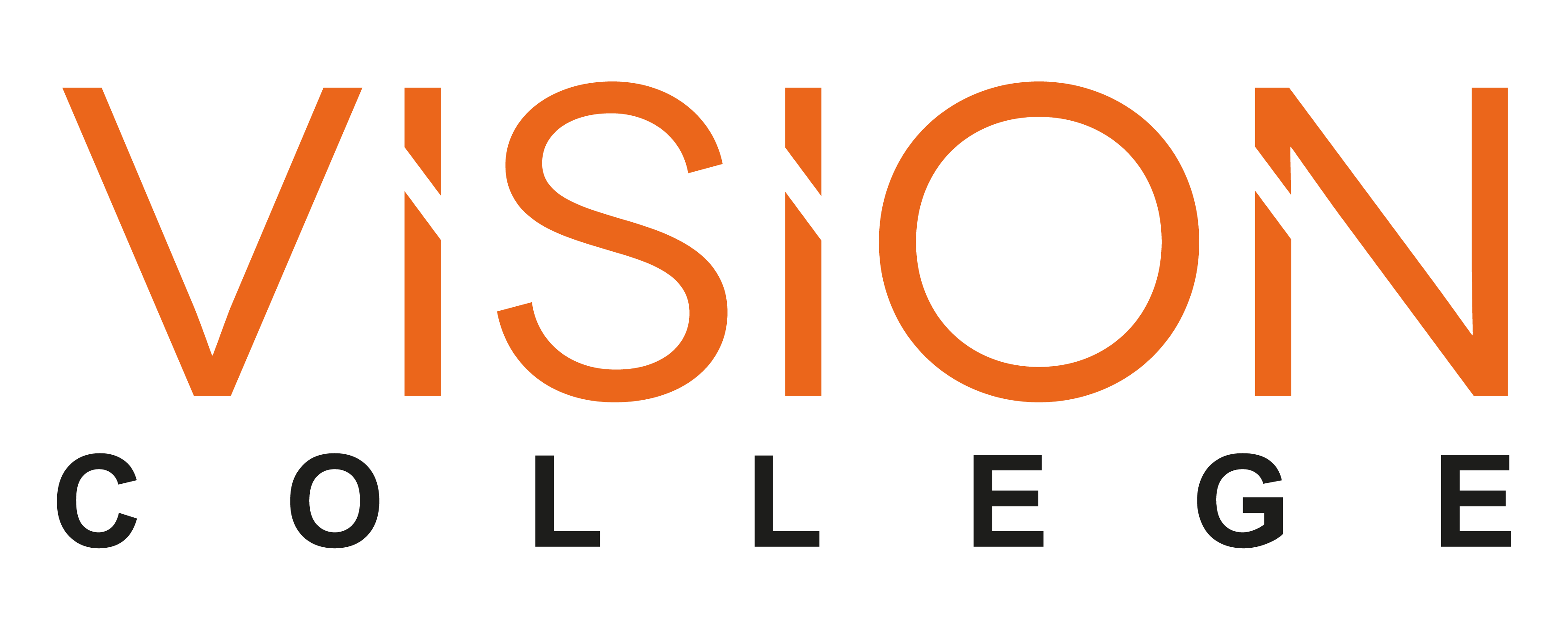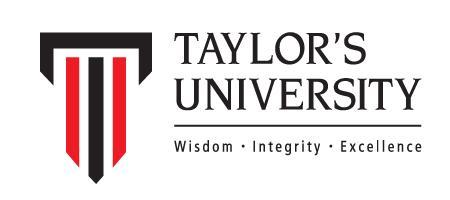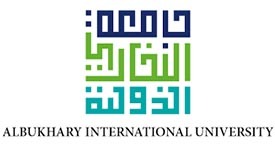Life Sciences Course in Malaysia : Complete Guide for International Students

- Home
- Specialization
- Life Sciences
Overview
Studying Life Science in Malaysia offers diverse opportunities across various academic levels, from Diplomas to PhDs. Students explore key fields like biotechnology, environmental science, and biomedical research. The tuition fees range from MYR 15,000 to MYR 80,000, depending on the course and institution. Malaysia is home to globally ranked universities such as Universiti Malaya (UM) and Universiti Putra Malaysia (UPM), offering high-quality education.
Graduates in Life Science can earn competitive salaries, starting from MYR 36,000 annually, with opportunities in biotechnology, pharmaceuticals, healthcare, and environmental sectors. Malaysia's growing biotech industry and strategic location in Southeast Asia make it an attractive destination for international students.
The country offers an affordable, multicultural environment with a strong focus on research, innovation, and career development in Life Science.
Why Study Life Science in Malaysia?
- World-Class Education: Top universities with advanced facilities and research programs in Life Science.
- Diverse Career Opportunities: Fields like biotechnology, healthcare, agriculture, and environmental science offer vast career prospects.
- Cutting-Edge Research: Malaysia is home to innovative research centers focusing on biotechnology, pharmaceuticals, and bioinformatics.
- Strategic Location: Situated in Southeast Asia, Malaysia connects students to the growing Life Science industry in the region.
- Affordable and Quality Education: Malaysia offers high-quality education at a lower cost compared to Western countries.
International Students Studying Life Science in Malaysia
Malaysia is a popular destination for international students due to affordable tuition fees, world-class universities, and diverse cultural experiences. Programs in Life Science are recognized globally, providing students with practical and research-oriented skills that are in demand across biotechnology, healthcare, environmental, and pharmaceutical industries. International students benefit from Malaysia’s strategic location in Southeast Asia, its multicultural environment, and post-study work opportunities.
Living Cost to Study Life Science Course in Malaysia
| Expense Category | Estimated Monthly Cost (RM) |
|---|---|
| Accommodation | RM 400 - RM 1,500 |
| Food | RM 300 - RM 600 |
| Transportation | RM 100 - RM 300 |
| WiFi/Internet | RM 80 - RM 150 |
| Miscellaneous | RM 200 - RM 400 |
Comparison of Lie Science Courses in Malaysia vs US and UK
| Factor | Malaysia | United States | United Kingdom |
|---|---|---|---|
| Tuition Fees (Annual) | $4,500 - $10,000 | $25,000 - $55,000 | $15,000 - $35,000 |
| Program Duration (Bachelor's) | 3 - 4 years | 4 years | 3 years |
| Living Costs (Monthly) | $200 - $500 | $1,000 - $2,000 | $1,000 - $1,500 |
| Total Estimated Cost (3-4 years) | $15,300 - $44,000 | $100,000 - $260,000 | $48,000 - $130,000 |
| Scholarships Available | Yes, various options | Yes, various options | Yes, various options |
| Language of Instruction | English | English | English |

TOP Universities in Malaysia
- Universiti Malaya (UM)
- Universiti Putra Malaysia (UPM)
- Universiti Sains Malaysia (USM)
- Universiti Kebangsaan Malaysia (UKM)
- Universiti Teknologi MARA - UiTM
Education Levels of Life Science Course
-
Diploma in Life Science: A 2-3 year foundational program offered by colleges and polytechnics, covering basic topics like biology, microbiology, and chemistry. It prepares students for entry-level jobs or further studies.
-
Bachelor’s Degree in Life Science: A 3-4 year program offered by universities, covering subjects such as molecular biology, biotechnology, genetics, and environmental science. It opens career opportunities in healthcare, research, and industry.
-
Master’s Degree in Life Science: A 1-2 year postgraduate program focusing on specialized fields like biotechnology, pharmacology, or bioinformatics. It includes research components and prepares students for advanced roles in research, academia, and industry.
- PhD in Life Science: A research-intensive program lasting 3-5 years, where students focus on original research projects. Graduates are prepared for leadership roles in academia, research institutions, and industry.
Diploma in Life Science Course in Malaysia
Duration:
The Diploma in Life Science is typically a 2 to 3-year program.
Intakes:
The program usually has intakes in March, July, and November, depending on the university or college offering the course.
Entry Requirements:
To be eligible for the Diploma in Life Science, students typically need:
- A high school diploma (SPM, O-Levels) or equivalent with a minimum of 3 credits (including in science subjects like Biology or Chemistry).
- Some institutions may require a pass in English and Mathematics at the SPM level, while others may have specific entry requirements in related science subjects.
Tuition Fee:
The tuition fees for the Diploma in Life Science course in Malaysia range from MYR 10,000 to MYR 20,000 for the entire program, depending on the institution.
Jobs for Diploma Holders in Life Science Course Holders in Malaysia:
Diploma holders in Life Science can pursue a variety of entry-level roles in the life science, healthcare, and research sectors, such as:
- Laboratory Technician
- Biotechnology Assistant
- Microbiologist
- Research Assistant
- Health Assistant
- Environmental Technician
- Quality Control Assistant
Bachelor’s in Life Science Course in Malaysia
Duration:
The Bachelor’s in Life Science typically takes 3 to 4 years to complete, depending on the university and whether the student is studying full-time or part-time.
Intakes:
The program generally offers intakes in January, May, and September.
Entry Requirements:
To be eligible for the Bachelor’s in Life Science, students need:
- A high school diploma (SPM, O-Levels) or equivalent, with strong performance in science subjects (Biology, Chemistry, Physics, or Mathematics).
- A minimum of 3 credits (including in science subjects like Biology or Chemistry).
- Some institutions may require a minimum CGPA of 2.0 or higher from secondary school.
- For students from non-English backgrounds, English proficiency through IELTS (minimum 6.0) or TOEFL (minimum 79) might be required.
Tuition Fee:
The tuition fees for the Bachelor’s in Life Science program typically range from MYR 20,000 to MYR 40,000 per year, depending on the university and the specific specialization.
Jobs for Graduates in Life Science Course Holders in Malaysia:
Graduates of a Bachelor’s in Life Science can pursue a wide variety of career options in both the public and private sectors, including:
- Research Scientist
- Biotechnologist
- Medical Laboratory Technologist
- Environmental Consultant
- Microbiologist
- Biochemist
- Health Educator
- Quality Control Technician
Master’s in Life Science Course in Malaysia
Duration:
The Master’s in Life Science program typically takes 1 to 2 years to complete, depending on whether the student is studying full-time or part-time and the specific area of research.
Intakes:
The program is generally available for January, April, and September intakes, although some universities may offer additional intakes or rolling admissions based on specific research programs.
Entry Requirements:
To be eligible for the Master’s in Life Science, students need to:
- A Bachelor’s degree in Life Science, Biology, Biotechnology, Biochemistry, Environmental Science, or a related field.
- Some universities may require a minimum CGPA of 2.5 or higher.
- Applicants must have a strong academic background and some universities may require a research proposal outlining their area of interest in life science. For certain programs, work experience or involvement in research projects may be an advantage.
- English language proficiency may also be required, typically through tests like IELTS or TOEFL, if the student's previous education was not in English.
Tuition Fee:
The tuition fees for the Master’s in Life Science in Malaysia generally range from MYR 18,000 to MYR 35,000 for the entire program, depending on the university, specialization, and whether the student is a Malaysian or international student.
Jobs for masters in Life Science Course Holders in Malaysia:
Master’s in Life Science can pursue a variety of roles in research, healthcare, academia, and industry. Some career options include:
- Research Scientist
- Biotechnology Specialist
- Medical Researcher
- Bioinformatics Analyst
- Clinical Researcher
- Environmental Consultant
- Product Development Specialist
- Teaching/Academia
PhD in Life Science Course in Malaysia
Duration:
The PhD in Life Science program typically takes 3 to 5 years to complete, depending on the nature of the research, the student's progress, and the specific university's requirements.
Intakes:
PhD programs in Life Science generally offer intakes in January, May, and September. However, some universities may also accept students on a rolling basis throughout the year.
Entry Requirements:
To be eligible for a PhD in Life Science, students must meet the following criteria:
- A Master’s degree in Life Science, Biology, Biotechnology, Biochemistry, Environmental Science, or a closely related field.
- Some universities may accept students with a Bachelor’s degree (with honors) in Life Science or a relevant field, provided they have an outstanding academic background and research experience.
- A strong academic record and a proven ability to conduct research independently.
- Research Proposal: Students are required to submit a detailed research proposal outlining their intended research focus within Life Science. This proposal is a critical part of the application process.
- English proficiency is often required for non-native speakers through IELTS (minimum score of 6.0 to 7.0) or TOEFL (minimum score of 79 to 100), depending on the university.
Tuition Fee:
The tuition fees for a PhD in Life Science in Malaysia typically range from MYR 25,000 to MYR 60,000 for the entire program. Fees may vary depending on the university, whether the student is local or international, and the length of the program.
Jobs for PHD holders in Life Science Course Holders in Malaysia:
PhD graduates in Life Science are highly sought after in both academia and industry. Some career options for PhD holders in Life Science include:
- University Professor/Academic Researcher
- Lead Research Scientist
- Biotech/Pharma Company Executive
- Government Researcher
- Medical Researcher
- Director of Research and Development
- Environmental Consultant
- Bioinformatics Specialist
Career Prospects of Life Science in Malaysia
- Biotechnology: Growing demand in medical, agricultural, and industrial biotechnology for drug development, genetic engineering, and biofuel production.
- Pharmaceutical Industry: Opportunities in drug research, clinical trials, regulatory affairs, and production of vaccines and medicines.
- Healthcare and Medical Research: Roles in diagnostics, public health, biomedical research, and medical technology innovations.
- Environmental Science: Careers in sustainability, conservation, and environmental management to address climate change and biodiversity preservation.
- Academia and Research: Opportunities to work as researchers or professors in universities, research institutes, or biotech firms.
- Agricultural Science: Jobs in improving crop yields, food safety, and sustainable farming methods through biotechnology.
- Bioinformatics: Careers combining biology with data science, essential for genetics, personalized medicine, and biological research.
Application Process
Research and Choose the Program:
- Step 1: Research various universities and their offerings in Life Science. Look for programs that suit your interests (e.g., molecular biology, biotechnology, environmental science, etc.).
- Step 2: Review the program structure, entry requirements, intakes (usually January, May, and September), and tuition fees.
- Step 3: Decide if you want to pursue a Diploma, Bachelor’s, Master’s, or PhD in Life Science.
Check Eligibility:
- Ensure that you meet the entry requirements for the program. Common requirements include:
- High school diploma for undergraduate programs (SPM/O-levels or equivalent).
- Bachelor’s degree for Master’s and PhD programs.
- Minimum grades or CGPA.
- English proficiency (IELTS/TOEFL scores for international students).
- Specific subject requirements (e.g., Biology, Chemistry for Life Science).
Prepare Required Documents:
- Gather all necessary documents for the application:
- Academic transcripts and certificates (high school, bachelor’s, or master's degrees).
- Passport copy (for international students).
- English proficiency test scores (e.g., IELTS, TOEFL) if required.
- Letters of recommendation (especially for postgraduate programs).
- Curriculum Vitae (CV), especially for Master’s and PhD programs.
- Research proposal (for Master’s and PhD applicants).
- Personal statement or motivation letter (if required).
Submit the Application:
- Step 1: Complete the online application on the chosen university's website. Many Malaysian universities allow online submissions.
- Step 2: Upload the required documents and fill out personal and educational details in the application form.
- Step 3: Some universities may require a research proposal for Master’s and PhD applications, detailing the intended research area or project.
Application Fees:
- Step 1: Pay the application fee if required. The fee amount varies by university but typically ranges from MYR 100 to MYR 300.
- Step 2: Some universities may waive the fee for specific categories of students, such as international students or those applying for scholarships.
Wait for Admission Decision:
- Step 1: After submitting your application, universities will assess your eligibility. This process may include:
- Interviews (for postgraduate programs).
- Additional document requests (e.g., portfolio, further academic documents).
- Step 2: The admission process typically takes 1 to 3 months from the application deadline, depending on the program.
Receive Offer Letter:
- Step 1: If accepted, you will receive an offer letter from the university. This letter will confirm your admission and outline the next steps.
- Step 2: For international students, the offer letter may also contain instructions on applying for a student visa.
Apply for a Student Visa
- Students from abroad must submit a request for a student visa via the Malaysian Immigration Department or the Education Malaysia Global Services (EMGS) portal following receipt of the letter of offer.
Confirm Enrollment
Make the tuition payment and then confirm your enrollment in order to ensure your spot within the course.
Visa Application Process for Studying in Malaysia
International Students from abroad who plan to study Life Science in Malaysia must be aware of the application procedure. The following is a brief summary of the process:
- Receive Offer Letter
- When applying for a visa, you first need to get an official invitation letter from the Malaysian university.
- Apply Through EMGS Portal
- Students from all over the world must submit a request for a student visa via the Education Malaysia Global Services (EMGS) portal. This portal facilitates application for visas and offers regular updates.
- Submit Required Documents
- It is necessary to create and upload these documents:
- The offer letter copy from the institution.
- Passport (valid for a minimum of twelve months).
- Passport-sized photographs.
- Certificates and academic transcripts.
- Evidence to prove English proficiency (if appropriate).
- Medical examination report (required for certain applicants).
- It is necessary to create and upload these documents:
- Pay Visa Processing Fee
- An application fee for processing visas that varies based on the origin country, has to be paid via an EMGS portal.
- Receive Visa Approval Letter (VAL)
- After your application has been processed and approved, you'll be issued a Visa Approval Letter (VAL). It's a vital document that is required to be able to enter Malaysia.
- Pre-Arrival Medical Checkup
- Certain students might be required to have a medical examination and then submit an official medical certificate prior to traveling to Malaysia.
- Travel to Malaysia
- Once you've got the VAL You can now go with the VAL in hand to Malaysia. It is necessary to show the VAL along with other pertinent documents when you arrive at the airport.
- Post-Arrival Medical Screening
- Once you have arrived upon arrival in Malaysia after arriving, you will need to undergo an obligatory medical examination at a certified health centre.
- Get Student Pass
- Once you've cleared the medical examination After passing the medical screening, the institution will help in getting after passing the medical screening, you will be able to obtain your Student Pass, which is granted through Malaysian Immigration Department. Malaysian Immigration Department. It allows students to remain and continue their studies in Malaysia during the course of your study.
Application Timeline for International Students in Malaysia
| Stage | Timeline | Details |
|---|---|---|
| Research Universities | 6-12 months prior to intake | Find out about universities that offer Life Science programs in Malaysia. Concentrate on the requirements, the program outline, and the scholarship opportunities available. |
| Check Entry Requirements | 6 to 9 months before intake | Check academic qualification, review the proficiency in language (IELTS/TOEFL) along with additional prerequisites to taking the Life Science course. |
| Prepare Documents | 6 to 8 months prior to intake | Take care to gather the required documents like the transcript of your academic studies, a personal statement, letters of recommendation, and passport copies. |
| Submit Application | 6 months before the intake | Fill out and send the application form to the chosen institution via their website portal. Check that all required documents are submitted. |
| Pay Application Fees | 5 to 6 months prior to the intake | Make sure you pay the necessary application fee during the application process. |
| Scholarship Applications | 5-6 months prior to the time of intake | Request scholarships at the institution or via other external sources. Make sure you check deadlines, as they may vary. |
| Await Admission Decision | 3-4 months prior to the intake | Universities will evaluate the applications. This process may involve interviews or the submission of additional documents if requested. |
| Receive Offer Letter | 3-4 months before the intake | If accepted, you'll receive an offer letter, which can be used to proceed with lodging arrangements and visa applications. |
| Apply for Visa | 3-4 months prior to the intake | Start the visa application process after receiving the offer letter. Make sure you have the necessary documents, including medical and financial records. |
| Arrange Accommodation | A minimum of 3 months before intake | Find secure accommodation on or off campus. Some universities offer assistance in securing housing for international students. |
| Enrollment and Payment | 1 to 2 months prior to intake | Complete the enrollment process, pay tuition, and register for classes. Be mindful of tuition payment deadlines. |
| Prepare for Travel | 1 month prior to intake | Make final travel arrangements to Malaysia, including flight booking and airport pickup (if provided by the institution). |
| Orientation | 1 week prior to intake | Participate in university orientation events to get familiar with the campus facilities and your program of study. |
| Program Start | Intake (January, May, or September) | The Life Science program begins according to the intake you applied for. Malaysian universities generally offer intakes in January, May, and September. |
Scholarships for International Students in Life Science in Malaysia
Malaysia offers a range of scholarships to help international students pursue their education in Life Science courses in Malaysia. These scholarships aim to reduce the financial burden on students while encouraging talented individuals to study in the country. Here are some notable scholarships available for those interested in a Life Science course in Malaysia:
- Malaysian Government Scholarships
- Description: Offered by the Malaysian government to attract international students, these scholarships cover tuition fees, living allowances, and health insurance.
- Eligibility: Open to students from specific countries pursuing undergraduate or postgraduate programs in Life Science, including disciplines like Biotechnology, Biomedical Science, and Environmental Science.
- University-Specific Scholarships
- Examples: Many Malaysian universities, such as Universiti Malaya (UM), Monash University Malaysia, and Taylor's University, offer their own scholarships for international students.
- Coverage: These scholarships can include full or partial tuition fee waivers, monthly stipends, and accommodation allowances.
- Eligibility: Criteria typically include academic merit, leadership skills, and community involvement. Specific entry requirements may vary based on the university.
- ASEAN Scholarships
- Description: Designed for students from ASEAN member countries, these scholarships support students pursuing various courses, including Life Science.
- Coverage: Scholarships generally cover tuition fees and living expenses for students pursuing undergraduate or postgraduate Life Science courses.
- Eligibility: Open to ASEAN nationals who meet the entry requirements of Malaysian universities.
- Private and NGO Scholarships
- Examples: Various non-governmental organizations (NGOs) and private entities also provide scholarships to international students in Life Science fields.
- Coverage: These scholarships vary widely but may include tuition fees and stipends for living expenses.
- Eligibility: Criteria differ depending on the organization, so students should carefully check the specific requirements before applying.
- Research Grants
- Description: Available for postgraduate students, particularly those enrolling in PhD programs in Life Science. Research grants are intended to support research projects in fields like Biotechnology, Environmental Science, and Biomedical Science.
- Eligibility: Grants are typically awarded based on the quality and impact of the proposed research, and students must usually demonstrate prior academic excellence and a well-developed research proposal.

